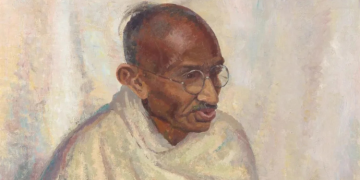The government has explained why the new National Identification cards (IDs) famously known as the Maisha Number Cards, have an expiry date.
In a statement, the State Department for Immigration and Citizen Services on July 22, 2024, clarified reasons for the expiration date following concerns raised by Civil Society groups.
The State Department highlighted that the renewal of National ID cards after every ten years is a standard practice in countries such as France and other African countries that have implemented an ID with a microchip.
“Attention has been drawn to a statement by the Civil Society questioning the legality and propriety of the new Maisha Card. Holders will need to renew their National ID cards every ten years. This is a standard practice in countries such as Uganda, Tanzania, Nigeria, Senegal, and France, among others that have implemented an ID with a microchip,” read part of the statement.

Further, the department noted that applicants seeking renewal of expired National ID cards will not be required to undertake fresh biometrics.
Govt on Expiration of Maisha Number Cards
They will however retake their passport-sized photos due to potential changes in facial features over the years, according to the government.
Also Read: Govt to Launch Digital IDs for Cows; Here is Why
The clarification comes after members of Kenya’s civil society organizations opposed the newly issued unique personal identification number.
The groups in a press conference on Sunday expressed skepticism and concern over the validity and implications of the new identification model, terming it a scheme to rig the 2027 General election.
They highlighted that the new IDs are set to expire in 2032, coinciding with the end of President William Ruto’s current term, should he be re-elected in the 2027 polls.
“The Maisha number comes with an expiry date, which raises serious questions. IDs play a crucial role in voting processes, and the expiration date on these new cards is suspicious. We are concerned that this could be a scheme to rig the 2027 elections,” the groups said.
However, the state department in its statement has clarified that the introduction of Maisha Card was preceded by at least 820 public and stakeholder engagements.
These included civil society, religious leaders, the private sector, the media, and the public. While clearing the air, the government said that the expiry date has no direct correlation with the general election date.
“The Maisha Card features a machine-readable microchip that contains relevant security features and personal details. Like other documents, such as ATM cards, the microchip has a shelf life of a maximum of ten (10) years from the date of issuance,” read part of the statement.
Introduction of New IDs
Maisha Card and its supporting infrastructure, including the Unique Personal Identifier (Maisha Number), digital ID, and the National Integrated Personal Registration System (Maisha Database), were introduced in November 2023.
Also Read: Inside Govt Plan to Bring ID & Passport Application Services to Grassroots Level
According to the State Department, the National Registration Bureau (NRB) has issued 972,630 Maisha cards (531,329 new applications and 441,301 duplicates).
In order to meet the rising demands, the government noted that the NRB has acquired a modern printer which will enhance the printing capacity to 30, 000 National IDs per day.
“The NRB appreciates the importance of the National ID Card as a constitutional right and an essential identification document and will strive to ensure eligible Kenyans obtain it as soon as possible.
To meet the rising demand for services, NRB has acquired a modern printer and enhanced the printing capacity to 30,000 National ID Cards per day against an average demand of 10,000 applications,” the statement adds.
Follow our WhatsApp Channel for real-time news updates!
https://whatsapp.com/channel/0029VaB3k54HltYFiQ1f2i2C




![Debate Rages Over Proposed Increase In Legal Drinking Age [Video] Nacada Raises Legal Drinking Age From 18 To 21]( https://thekenyatimescdn-ese7d3e7ghdnbfa9.z01.azurefd.net/prodimages/uploads/2025/07/beer-360x180.jpg)



































































![Debate Rages Over Proposed Increase In Legal Drinking Age [Video] Nacada Raises Legal Drinking Age From 18 To 21]( https://thekenyatimescdn-ese7d3e7ghdnbfa9.z01.azurefd.net/prodimages/uploads/2025/07/beer-120x86.jpg)